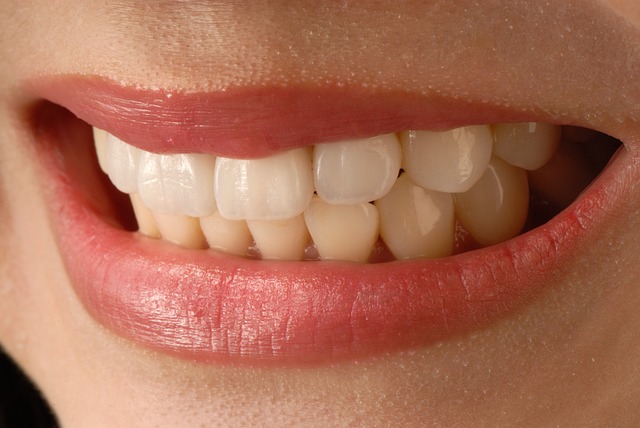Discover the ultimate dental showdown: veneers versus implants. Uncover the pros and cons of each option to make an informed decision about your smile.
1. Understanding the Difference Between Veneers and Implants: Exploring Dental Options
When it comes to improving your smile, there are various options available. Two popular choices are veneers and implants. It’s important to understand the differences between these dental treatments to make an informed decision about which one is right for you.
Veneers:
- Veneers are thin, custom-made shells that are bonded to the front surface of your teeth.
- They are primarily used to enhance the appearance of teeth that are discolored, misaligned, or chipped.
- Veneers can improve the shape, size, and color of your teeth, giving you a brighter and more symmetrical smile.
- The procedure for getting veneers involves removing a small amount of enamel from the teeth to create space for the veneers.
- Veneers are a cosmetic solution that provides aesthetic benefits without addressing any underlying dental issues.
Implants:
- Dental implants are titanium posts that are surgically placed into the jawbone to replace missing teeth.
- They act as artificial tooth roots, providing a strong foundation for crowns or bridges.
- Implants are a long-term solution for tooth loss and offer functional benefits, such as improved speech and chewing ability.
- The process of getting implants may require multiple visits and several months to complete, as the implants need time to fuse with the jawbone.
- Unlike veneers, implants address the underlying problem of missing teeth and provide a permanent solution for a natural-looking smile.
Knowing the differences between veneers and implants allows you to make a more informed decision about which option suits your needs best. Whether you’re looking to enhance your smile cosmetically or replace missing teeth, consulting with a dental professional is essential to determine the most suitable treatment for you.
2. The Pros and Cons of Veneers: Are They a Superior Choice for Dental Enhancement?
When it comes to dental enhancement, veneers offer a unique solution that can greatly improve the appearance of your teeth. Like any dental procedure, however, they come with their own set of pros and cons that you should consider before making a decision.
Let’s start with the pros:
- Natural-looking results: Veneers are designed to replicate the natural appearance of teeth, giving you a beautiful and seamless smile.
- Permanent solution: With proper care, veneers can last for a decade or even longer, providing you with long-lasting results.
- Stain-resistant: Unlike natural teeth, veneers are resistant to staining from food and drinks, making them a great option for those who enjoy coffee, wine, or other potentially staining substances.
- Quick and relatively painless procedure: The process of getting veneers is typically straightforward and can often be completed in just a few visits. Anesthetics are used during the procedure, so discomfort is minimal.
While veneers offer many benefits, it’s important to also consider the potential cons:
- Irreversible alteration: Veneers require some removal of enamel from the teeth, which means the procedure is irreversible. Once you have veneers, you will always need them to maintain the aesthetic results.
- Higher cost: Compared to other dental procedures, veneers can be more expensive. However, considering their longevity and transformative effects, many people find the investment worthwhile.
- Susceptible to damage: While veneers are quite durable, they can still be damaged by excessive clenching or grinding of the teeth. It’s important to wear a nightguard if you have a habit of grinding your teeth during sleep.
Considering both the pros and cons of veneers is essential for making an informed decision about your dental enhancement. Consulting with a trusted dental professional will allow you to assess whether veneers are the right choice for you.
3. Unveiling the Advantages of Dental Implants: Are They Worth the Investment?
Dental implants are a highly beneficial solution for those seeking a long-term and natural-looking option to restore their smile. Here, we will explore the advantages of dental implants and why they are worth the investment:
1. Improved oral health: Dental implants not only replace missing teeth but also help maintain overall oral health. Unlike other tooth replacement options that may require adjacent teeth to be altered or removed, implants do not rely on neighboring teeth for support. This preserves the integrity of your natural teeth and promotes better oral hygiene.
2. Enhanced aesthetics: Dental implants are designed to mimic the appearance and function of natural teeth. With their secure fit and natural-looking appearance, they seamlessly blend with your existing teeth, resulting in a smile that you can confidently show off.
3. Increased comfort and functionality: Unlike dentures that can slip or cause discomfort while eating or speaking, dental implants offer stability and functionality. They are securely anchored into your jawbone, allowing you to enjoy your favorite foods without any restrictions.
4. Improved speech: Dental implants eliminate the slurring or mumbling that may occur with other tooth replacement options, ensuring clearer speech and enhanced self-confidence.
5. Long-lasting solution: With proper care and maintenance, dental implants have the potential to last a lifetime, making them a wise investment in your oral health and overall well-being.
4. Decoding the Factors to Consider: Making an Informed Decision on Veneers vs. Implants
When considering whether to choose veneers or implants, it’s important to understand the key factors that can help you make an informed decision. Here, we’ll break down these factors to assist you in determining which option suits your dental needs.
1. Dental Condition: Assessing the current condition of your teeth is essential. Veneers are a more suitable option if you have healthy teeth but want to enhance their appearance. On the other hand, if you have missing teeth or severe dental issues, implants may be the better choice to restore both function and aesthetics.
2. Durability: Veneers can typically last between 10 and 15 years with proper care, making them a long-lasting solution for correcting minor cosmetic imperfections. Implants, however, have the potential to last a lifetime if properly maintained. They are a sturdy and permanent option for replacing missing teeth, offering exceptional durability.
5. Achieving Aesthetic Perfection: How Veneers Transform Your Smile
When it comes to achieving a radiant smile, veneers can work wonders. These thin, custom-made shells are placed over the front surface of your teeth, transforming the appearance of your smile. Whether you have chipped, stained, or misaligned teeth, veneers can help you achieve aesthetic perfection and boost your confidence.
So, how exactly do veneers work their magic? Here are the top benefits of this popular cosmetic dental treatment:
- Enhanced appearance: Veneers are designed to match the color, shape, and size of your natural teeth, giving you a flawless smile. They can be customized to cover up imperfections such as gaps, chips, and discoloration.
- Long-lasting results: Veneers are known for their durability and can last for many years with proper care. They are resistant to stains from coffee, tea, and tobacco, ensuring your smile stays bright.
- Minimally invasive: One of the greatest advantages of veneers is that they require minimal tooth preparation compared to other dental treatments. Your dentist will remove a small amount of enamel to ensure a seamless fit, but the process is generally painless.
- Improved self-confidence: With their ability to transform your smile, veneers can significantly boost your self-esteem. You’ll no longer feel self-conscious about your teeth and can confidently show off your beautiful, natural-looking smile.
With the help of veneers, achieving the smile you’ve always dreamed of is now within reach. Consult with a trusted dentist to discuss whether veneers are the right option for you and take the first step towards achieving aesthetic perfection.
6. Beyond Cosmetic Appeal: How Dental Implants Offer Long-Term Functional Benefits
When it comes to dental implants, their benefits go far beyond simply improving your smile. Dental implants offer long-term functional advantages that can significantly enhance the quality of your life. Here are some reasons why dental implants are the ideal choice for restoring missing teeth:
1. Improved chewing and speech: Dental implants function like your natural teeth, allowing you to chew your favorite foods with ease and speak clearly without any discomfort or fear of your prosthetic teeth slipping.
2. Enhanced bone health: Unlike other tooth replacement options, dental implants stimulate the jawbone just like natural tooth roots. This stimulation helps to maintain the bone’s strength and prevent bone loss, which can occur when teeth are missing.
3. Longevity: Dental implants are designed to last a lifetime with proper care. Unlike dentures or bridges, which may need to be replaced after several years, dental implants are a permanent solution that eliminates the need for ongoing repairs or replacements.
4. Natural look and feel: Dental implants are meticulously crafted to blend seamlessly with your natural teeth, providing a natural look and feel. No one will be able to tell that you have dental implants, as they mimic the appearance and function of real teeth.
5. Preserving adjacent teeth: Unlike traditional dental bridges, which require the adjacent teeth to be ground down for support, dental implants do not rely on neighboring teeth for stability. This helps to preserve the integrity of your existing teeth and prevents unnecessary damage.
6. Improved oral health: With dental implants, you can maintain good oral hygiene by brushing and flossing just like you would with natural teeth. There are no special cleaning routines or adhesives required, making it easier to keep your gums and remaining teeth healthy.
Investing in dental implants offers more than just cosmetic improvements. Their long-term functional benefits make them a superior choice for people looking to regain their oral health and confidence.
7. Delving Into the Dental Veneer Experience: What to Expect from the Procedure
Considering dental veneers to enhance your smile? Here’s a breakdown of what you can anticipate during the procedure:
- Initial Consultation: Your journey begins with a consultation where you’ll discuss your goals and expectations with a skilled dentist. They will examine your teeth and determine if veneers are the right option for you.
- Preparing the Teeth: Once you decide to proceed, the next step involves preparing the teeth for veneers. This process typically entails removing a thin layer of enamel to create a suitable surface for the veneers to adhere to.
- Choosing the Right Shade: During this phase, you’ll work closely with your dentist to select the ideal shade for your veneers. They will consider factors such as your natural tooth color, skin tone, and overall smile aesthetics.
Once these preliminary steps are complete, the actual placement of veneers will commence. Here’s what you can anticipate during this phase:
- Temporary Veneers: Temporary veneers may be placed over your teeth while your custom-made permanent veneers are being crafted in the dental lab. These temporaries offer you a preview of the final result.
- Bonding Process: When the final veneers are ready, your dentist will remove the temporaries and proceed with bonding the permanent veneers to your teeth. This involves precise placement, shaping, and curing using a special light to ensure a secure and long-lasting fit.
- Final Adjustments: After the bonding process, your dentist will make any necessary adjustments to the veneers to ensure a perfect fit and alignment with your natural teeth. This step may involve slight modifications and polishing.
With the procedure complete, you will leave the dental office with a dazzling, transformed smile. It’s important to follow proper oral hygiene practices and visit your dentist regularly to maintain the longevity and beauty of your dental veneers.
8. Implants: Shaping the Future of Restorative Dentistry for Missing Teeth
Implants have revolutionized the field of restorative dentistry, offering a long-lasting solution for missing teeth. Unlike traditional dentures or bridges, implants are surgically inserted into the jawbone, providing a stable foundation for replacement teeth. This innovative approach not only improves the appearance of the smile but also enhances overall oral health and functionality.
One of the key advantages of implants is their ability to preserve the integrity of the jawbone. When a tooth is lost, the surrounding bone can begin to deteriorate over time. Implants prevent this process by stimulating the jawbone, mimicking the natural stimulation provided by the tooth’s root. This not only maintains the strength and structure of the jawbone but also prevents adjacent teeth from shifting, ensuring a proper bite and alignment. Whether you are missing a single tooth or multiple teeth, implants offer a reliable and durable solution that can last a lifetime. With advancements in technology and techniques, implant procedures have become increasingly efficient and accessible, making them a popular choice for patients seeking a permanent and natural-looking dental restoration.
9. Veneers vs. Implants: Evaluating Durability, Maintenance, and Longevity
When it comes to choosing between veneers and implants, durability and longevity are key factors to consider. Veneers, made of thin porcelain shells, are bonded to the front surface of the teeth, while implants are artificial tooth roots that are surgically placed in the jawbone and topped with a dental crown. Here, we will evaluate both options to help you make an informed decision:
- Durability: Veneers, although relatively strong, may chip or crack if subjected to excessive force, such as biting down on hard objects. On the other hand, implants are known for their exceptional durability and can last a lifetime with proper care and maintenance.
- Maintenance: Veneers require regular oral hygiene practices, including brushing, flossing, and routine dental visits, just like natural teeth. Maintaining good oral hygiene can help prevent issues such as staining or gum inflammation. Implants, however, do not require any special maintenance and can be cared for just like natural teeth. Regular oral hygiene practices are crucial for the long-term success of implants.
10. Personalizing Your Dental Journey: Weighing the Options of Veneers and Implants
When it comes to enhancing your smile and achieving the perfect set of teeth, there are various options to consider. Two popular choices that can transform your dental journey are veneers and implants. Each option has its own set of advantages and considerations, and it’s essential to weigh them carefully before making a decision.
Veneers:
- Porcelain veneers are thin shells that are custom-made to fit over the front surface of your teeth. They are an excellent choice for individuals with discolored, chipped, or misaligned teeth.
- Veneers offer a natural-looking, aesthetic solution as they are designed to match the shape and color of your existing teeth.
- The application process involves minimal tooth preparation, making it a less invasive option compared to dental implants.
- Keep in mind that veneers are a cosmetic solution and may not be appropriate for individuals with significant tooth decay or structural damage.
Implants:
- Dental implants are titanium posts surgically placed into the jawbone to serve as artificial tooth roots.
- Implants are a durable, long-lasting solution that can replace missing teeth and provide stability for dental restorations.
- They are a great option for individuals with missing teeth, offering both functional and aesthetic benefits.
- Implants require a surgical procedure for placement and may involve a longer treatment process, including osseointegration and crown restoration.
Ultimately, the decision between veneers and implants depends on your specific dental needs and goals. Consulting with a qualified dentist will help determine which option will provide you with the best outcome for a confident and personalized dental journey.
In summary, choosing between veneers and dental implants ultimately depends on your specific needs and desired outcome. Veneers offer a more cost-effective and minimally invasive solution for enhancing the appearance of your teeth. On the other hand, dental implants provide a long-lasting and durable solution for replacing missing teeth. Consulting with your dentist will help determine the best option for you. Remember, the key is to prioritize your oral health and make an informed decision.





